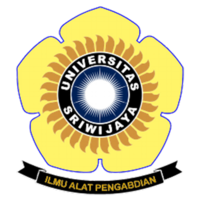ORGANIZING PROFESSIONAL AND PEDAGOGICAL TRAINING TO IMPROVE ENGLISH TEACHERS’ SKILLS: A CRITICAL LITERATURE REVIEW STUDY
Abstract
Abstract: This literature review study aims to address the current issues on English Teachers’ problems in their efforts to develop their professional and pedagogical Competence, in Jambi Province, Indonesia. The critical review of relevant studies on the field of professional and pedagogical competence of EFL teachers reveals that there are several topics related to the competences and skills that teachers should have to better improve their teaching practice. In this review, the researchers present what literatures suggested and recommended in the area of teachers’ professional and pedagogical competence and possible training that stakeholders might hold to improve the quality of teachers teaching English both in junior and senior high schools in Indonesia. The relevant articles being reviewed were from Indonesian context as well as International context. This study hopefully can contribute to the betterment of teaching practice of English in Indonesian schools. The following topics are presented in order; Teacher’s professioanl competence, Teachers’ pedagogical competence, the domains and dimensions of English teachers’ competence, Teachers’ training, and Conclusion and suggestions.
Keywords: Professional Competence, Pedagogical Competence, English Teachers, Teachers’ Trainning.
Full Text:
730-736References
References
Berns, M. (1990). ‘Second’ and ‘foreign’ in second language acquisition/foreign language learning: A sociolinguistic perspective. In B. Van Patten and J.F Lee (Eds.), Second language acquisition—Foreign language learning. Philadelphia, PA: Multilingual Matters Ltd.
Cahyono, B. Y. (2014). Quality of Indonesian EFL teachers: The implementation of lesson study to improve teacher pedagogical content competence. In H. Widodo & N. Zacharias (Eds.), Recent issues in English language education (pp. 65–88). Surakarta, Indonesia: UNS Press.
Cross, D. (2003). Language teacher preparation in developing countries: Structuring pre-service teacher training program. English Teaching Forum, 41(4), 41–43.
Irmawati, D. K. (2014). Models of TEFL teachers’professional development. Paper presented at the TEFLIN International Conference, Solo, Indonesia.
Lengkenawati, N. S. (2005). EFL teachers’ competence in the context of English curriculum 2004: Implication for EFL teacher education. TEFLIN Journal, 16(1), 79 – 92.
Mbato, C.L. (2013). Facilitating EFL learners’ self regulation in reading: Implementing a metacognitive approach in an Indonesian higher education context.Lismore, NSW: Southern Cross University.
Mulhauser, R. (1958). Upgrading the in-service teacher. Modern Foreign Languages in the High School Bulletin, 16, 140.
Perry, R.& Lewis, C. (2009). What is successful adaptation of lesson study in the US? Journal of Education Change, 10(4), 365–391.
Philipson, R. (1992). Linguistic imperialism. Oxford, England: Oxford University Press.
Rahayu, P. S.& Hizriani, N. (2014). English teachers’professional development at Hulu Sungai Selatan. South Kalimantan. Paper presented at the TEFLIN International Conference, Solo, Indonesia.
Richards, J.C. (1998). Beyond training: Perspectives on language teacher education. Cambridge, England: Cambridge University Press.
Richards, J. C. & Farrel, T.S.C. (2005). Professional development for language teachers. New York, NY: Cambridge University Press.
Shulman, L.S. (1986). Those who understand: knowledge growth in teaching. Educational Researcher, 15, 4–14.
Soepriyatna, S. (2012). Investigating and assessing competence of high school teachers of English in Indonesia. Malaysian Journal of ELT Research, 8(2), 38–49.
Sulistiyo, U. (2008). Learning English in an Indonesian university: A study of learners’ preferred activities. La Trobe University.
Sulistiyo, U. (2015). Improving English as a foreign language teacher education in Indonesia: The case of Jambi University. RMIT University
Sulistiyo, U. (2016). English Language Teaching and EFL Teacher Competence in Indonesia. Proceedings of ISELT FBS Universitas Negeri Padang 4 (2), 396-406
Suryati, N. (2013). Developing an effective classroom interaction framework to promote lower secondary school students’ English communicative competence in Malang, East Java, Indonesia (Unpublished dissertation). The University of Newcastle, NSW.
Yulia, Y. (2013). Teaching challenges in Indonesia: Motivating students and teachers’classroom language. Indonesia Journal of Applied Linguistics, 3(1), 1–16.
Yuwono, G. (2005). English language teaching in decentralised Indonesia: Voices from the less privileged schools. Paper presented at the AARE 2005 International Education Research Conference, The University of Sydney, Sydney, NSW.
Yuwono, G.I. (2008). Indonesian EFL teachers’professionalism: A case study in Salatiga municipality (Unpublished doctoral dissertation). University of Sydney, Sydney, NSW.
Article Metrics
Abstract view : 510 times730-736 - 285 times
Refbacks
- There are currently no refbacks.
